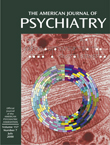An optimal therapeutic dose of a drug should be considered the dose at which a patient has a significant symptom reduction without unwanted side effects. Risperidone, a novel antipsychotic, is marketed with the suggestion of a rapid titration schedule (target dose of 6 mg/day by the third day)
(1). However, recently a slower dose increase has been encouraged
(1,
2). There is evidence that many patients (i.e., elderly patients, children, drug-naive patients) are sensitive to antipsychotic medication and need low therapeutic doses. To our knowledge, no information exists regarding the optimal risperidone dose in drug-naive, first-episode schizophrenia. The aim of our study was to provide this information.
Our study group consisted of 17 drug-naive patients with first-episode schizophrenia (per DSM-IV criteria): 12 women and five men, with a mean age of 28.6 years (SD=5.6), consecutively admitted to Eginition Hospital, University of Athens, from April 1998 to March 1999. Written informed consent was obtained from the subjects and their relatives.
All patients were openly treated with risperidone, given once daily in the evening, according to standard guidelines. Doses were gradually increased during an 8-week trial period (increased 1 mg/day per week for the first 3 weeks). Diazepam (mean=13.30 mg/day, SD=6.23) was co-administered to nine patients for agitation, anxiety, or insomnia. The patients’ psychopathology was assessed at baseline (drug-naive state), biweekly, and at endpoint by using the Positive and Negative Syndrome Scale
(3). The optimal risperidone dose was defined as the dose at which either symptoms were reduced (at least 20% from baseline) or extrapyramidal side effects emerged. To assess improvement, we calculated the percentage of symptomatic change on the Positive and Negative Syndrome Scale, adjusted for minimum baseline ratings. The mean optimal daily risperidone dose was 2.70 mg/day (SD=0.89). All patients reached their optimal dose before developing extrapyramidal side effects. Four patients developed parkinsonism, and one developed akathisia at a mean daily risperidone dose of 5.20 mg/day (SD=1.60). Thirteen patients (76%) achieved an optimal response with a risperidone dose of up to 3 mg/day, with an average 60% (SD=21%) improvement in total Positive and Negative Syndrome Scale score at the end of the 8-week trial period. Four patients (24%) reached an optimal dose of 4–5 mg/day, with a mean 45% (SD=28%) improvement. None of the patients achieved optimal response at doses higher than 6 mg/day.
Although confirmation is needed with the use of larger patient groups, this study’s findings suggest that “low and slow” increases of risperidone doses for treating drug-naive patients with first-episode schizophrenia are sufficient to minimize the risk of unwanted extrapyramidal side effects and reduce the risk of noncompliance with treatment.

